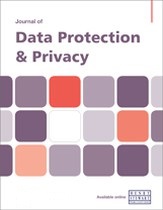Benefits and disadvantages of IoT for government, business and consumer sectors
Abstract
The Internet of Things, or IoT, is the growing network of interconnected devices that are able to communicate with each other and with other internet-enabled devices and systems. This can include a wide range of devices, from smart home appliances and security systems to industrial equipment and wearable technology. IoT is important because it allows for the seamless exchange of data and information between devices, enabling them to work together in new and innovative ways. This can lead to a number of benefits, such as improved efficiency, cost savings and enhanced functionality. Nevertheless, the excessive use of IoT applications may have some setbacks for the users. This paper aims to examine the benefits, but also the disadvantages of IoT applications in government, business and consumers sectors.
The full article is available to subscribers to the journal.
Author's Biography
Ioannis Giokaris teaches immovable property law, equity law and trusts, public international law (in Greek), inheritance law (in Greek), international organisations (in Greek) and European competition law (in Greek). He has been an adjunct lecturer at the University of Nicosia, Faculty of Law where he taught commercial law I (in English), commercial law II (in English), European competition law (in English), company law I (in English), company law II (in English), maritime law (in English), diplomacy (in English), commercial law and negotiable instruments (in Greek), law of torts (in Greek), company law (in Greek) and insolvency law (in Greek). Additionally, he has been an instructor in business law at Global Training in Limassol. His fields of interest are law of contracts, company law, competition law, public international law, inheritance law, international organisations, law of taxation, media and communication.
